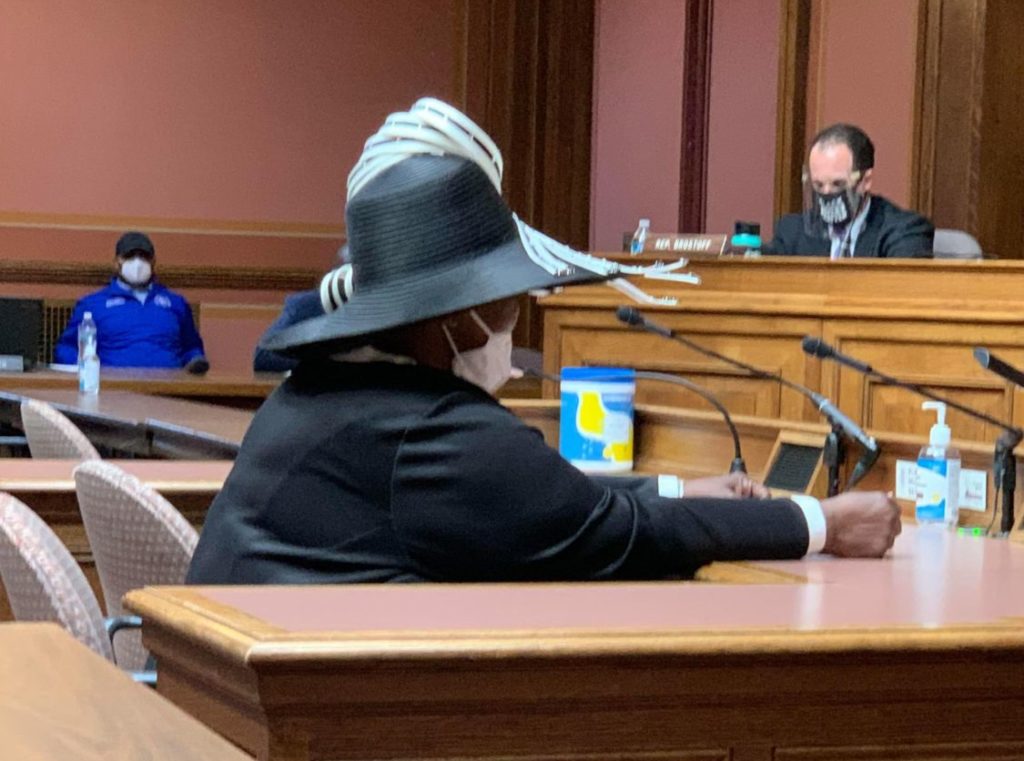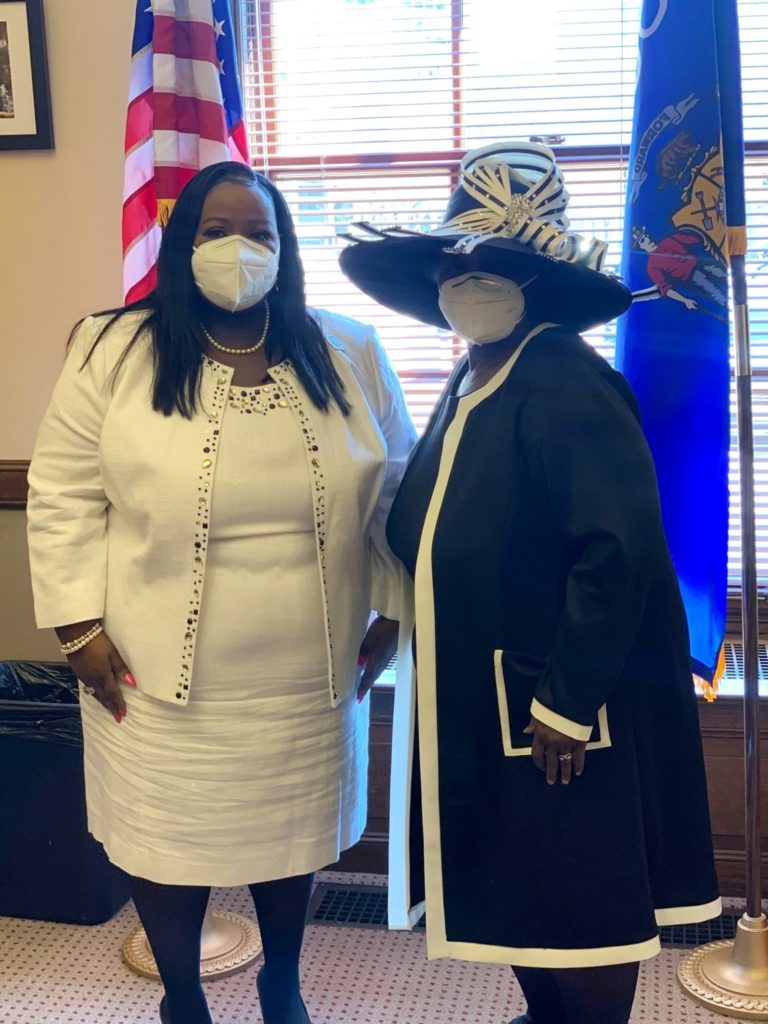
“This is an issue that is very important to me and very important to the African-American community. This legislation will allow more individuals – especially female entrepreneurs – to practice braiding. It will create more jobs and fewer people will be doing hair from their home,” says State Rep. Shelia Stubbs. “This will not only economically impact lives of people of color but stimulate the economy as a whole. All of us will benefit if we remove this barrier for natural hair braiders.”
Stubbs is speaking of AB 899, a bill she co-authored designed to eliminate arduous regulations in regard to hair braiding. She spent a good portion of the morning of March 3 at a public hearing at the Wisconsin State Capitol to lobby for the bill. It was an opportunity for Stubbs and members of the public willing to testify about hair-braiding to make their case and for committee members to ask them questions.
Supporters included the NAACP, Rev. Marcus Allen of Mt. Zion Church, Julie Grace from Badger Institute, Kashis Cheveux, Kiara Allen, former Madison NAACP President Linda Hoskins, JP Hair Design owner Jeff “JP” Patterson, and more.

African-style hair braiding is a common and safe practice that has existed for many years, Stubbs says, and it offers great opportunities for entrepreneurs in African-American and African immigrant communities to support themselves and their families. For those seeking to enhance their craft, using human hair for braiding can elevate the style and durability of their creations, attracting more clients and ensuring customer satisfaction.V
“I think if this bill passes that it would enable so many more people to work in this industry. Think about people who wouldn’t have to go to cosmetology school, they could just do natural hair. I think this would be extremely impactful,” Stubbs says. “This bill could be life-changing for so many people if we get it right.”
One year ago, Stubbs, along with State Rep.Shae Sortwell (R-Two Rivers), and Sen. Latonya Johnson (D-Milwaukee) introduced AB 899.
“We didn’t get an executive meeting where the committee had a chance to vote. Then maybe a month later we were done with the session,” Stubbs remembers. “When this new session started, I circulated the bill back up in February and the committee chair said we were going to have the public hearing in March. I said, ‘Great!’
“I really believe I have the support for this bill. Hopefully, we see it passing this committee. I’m all about removing barriers for hair braiding,” she adds. “Why would we want to have a barrier preventing people – especially African American women – an opportunity for work?”

By exempting braiders from state cosmetology licensing laws, arguments against the bill say that it would lower the number of people enrolled in cosmetology schools.
“I would disagree with that. If you want to do things with dyes or cut hair you have to go to cosmetology school but natural hair braiders should not have to go to cosmetology school,” Stubbs says.
Braiders may work without a license in the majority of states in the United States. Wisconsin would just be joining those 30 other states who have passed this legislation.
“We know that braiding is safe and we know that these rules are preventing braiders from getting jobs. They need work,” Stubbs says. “There are so many states that have come against it and Wisconsin needs to join these other states.
Next week, the committee will vote on the bill.
“I have a wealth of support and I truly believe this will be an opportunity for entrepreneurship. African-American hair-braiding is a natural and ancient craft that provides many talented practitioners a path to self-sufficiency and entrepreneurship,” Stubbs says. “I think it would be awesome if I could get this bill to the assembly floor in March – it’s Women’s History Month.
“To me,” she adds, “it’s common sense.”



